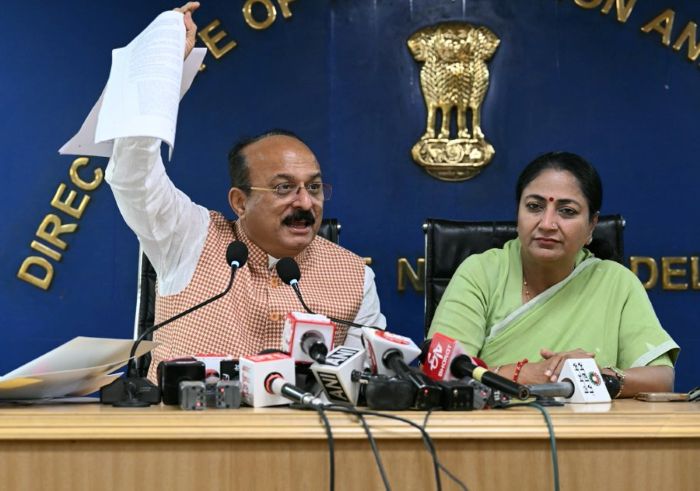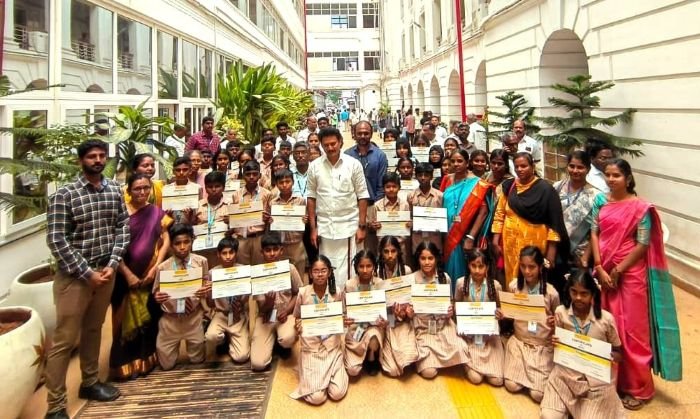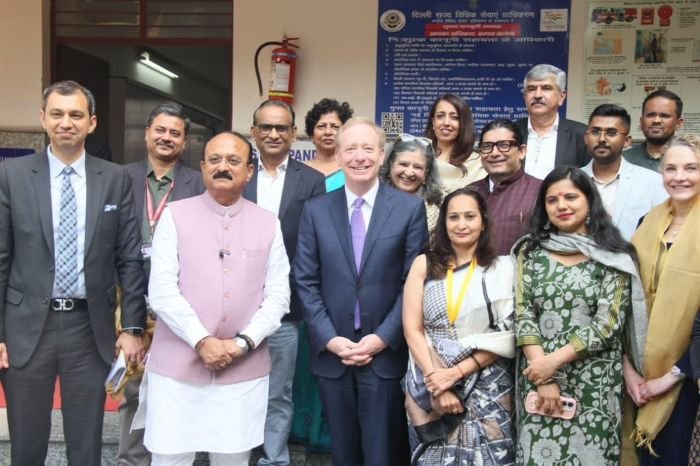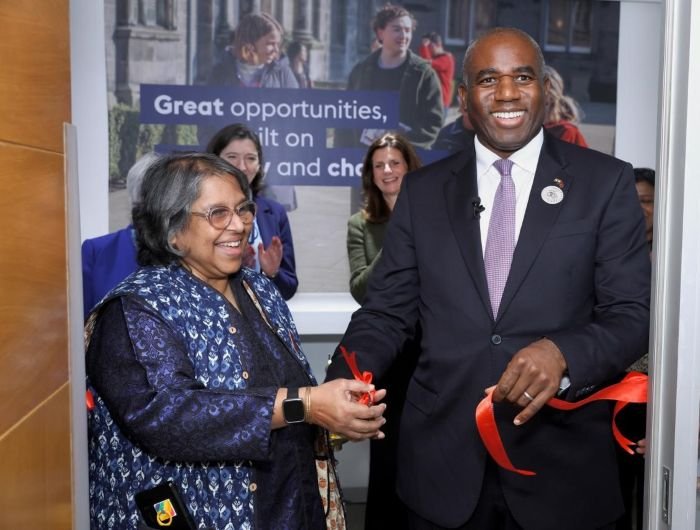
In a landmark move to bring relief to thousands of parents and students, the Delhi Cabinet on April 29 approved a draft bill (The Delhi School Education (Transparency in Fixation and Regulation of Fees) Bill, 2025) aimed at regulating school fees across all private, government-aided, and unaided schools in the National Capital. The bill, which is being hailed as a historic decision by the Delhi Government, sets comprehensive guidelines and procedures for determining fees in all 1,677 schools operating in the city.
Chief Minister Rekha Gupta announced the decision following the Cabinet meeting, calling it a “historic and brave” step taken in the interest of Delhi’s citizens. “I feel overjoyed to tell you that the Delhi Government has made a historic and brave decision, and the draft Bill has been passed by the Cabinet today,” CM Gupta stated. “For the first time in history, such a foolproof Bill is being drafted by the Delhi Government to regulate school fees in a transparent and equitable manner.”
The proposed legislation outlines a structured framework that will apply to all types of educational institutions—private, government-aided, and unaided—ensuring uniformity and fairness in fee determination. It includes a detailed procedure for setting and reviewing fees and aims to prevent arbitrary hikes that have long burdened families in the capital.
Education Minister Ashish Sood elaborated on the key features of the bill, stating, “The bill will be presented and passed soon. Parents, teachers, and management will be involved in regulating the fees. We will be reviewing it on 18 provisions and implementing it accordingly. Under this bill, fee hikes will be permitted only once every three years. Strict penalties, including government takeover of schools, will be imposed on institutions that violate the guidelines.”
The draft bill which has not been made public so far is expected to be tabled in the Delhi Legislative Assembly in the coming weeks after receiving feedback across stakeholder groups (though not sought so far). The initiative has sparked significant public interest, with many parents welcoming the move as a long-overdue measure to curb exploitative practices in the education sector.
Key Features of the Draft Bill on basis of limited info in public domain:
- Government Approval for Fee Hikes: Schools are prohibited from increasing fees without prior approval from designated government committees.
- Three-Tier Committee System: The bill proposes the establishment of fee regulation committees at the school, district, and state levels. These committees will include representation from parents, teachers, and government officials to ensure a balanced decision-making process.
- Parent Representation: At the school level, the committee will comprise six members from the school (including the principal and three teachers), five parents/guardians (selected through a draw of lots, ensuring representation from women and reserved categories), and a nominee from the Directorate of Education
- Penalties for Non-Compliance: Schools found violating the guidelines may face penalties ranging from ₹1 lakh to ₹10 lakh. Additionally, coercive actions against students, such as withholding results or expelling them over unpaid fees, are prohibited.
- Fee Determination Factors: The bill outlines specific factors to be considered while determining school fees, including the school’s location, infrastructure, educational standards, administrative and maintenance expenditures, and any surplus revenue.
If passed, this bill could set a precedent for other states to follow in regulating school fees and ensuring access to affordable education.
Why this bill is need?
A storm is brewing in Delhi’s school education sector over annual fee hikes, as top private schools—led by DPS Dwarka—face scrutiny for alleged irregularities and violations of student rights. The newly formed Bharatiya Janata Party (BJP) government in Delhi, which took office in February 2025, has launched an investigation into fee-related malpractices across more than 600 private schools. Early findings reveal retrospective fee hikes and potential fund misuse, raising concerns about the financial burden on parents. With such a large number of schools under the scanner, the focus has shifted to enforcing accountability and closing legal loopholes and tightening regulations. Also, in this clean up act SMC elections have also been ordered.
With allegations of excessive fee hikes to the tone of 25-40%, protests at various schools by parents became louder and the issue assumed political connotations after former Chief Minister and AAP leader Atishi Marlena accused the new BJP government of giving a free hand to private schools to increase their fees. She accused private schools of “looting” parents, alleging that the new administration under the BJP allowed indiscriminate fee hikes. Atishi had challenged the BJP to freeze fee hikes and conduct audits of all schools by CAG-empaneled auditors.
What added fuel to the fire is the case of Delhi Public Society (DPS) owned school in Dwarka subjecting defaulter students to discrimination/ indignity within the school premises, as a device or means to recover any outstanding fees. An inspection committee led by the District Magistrate (South-West) found that students had been isolated since March 20, 2025, closely monitored by guards, and restricted from using the canteen or washrooms freely. Such treatment obviously caused an outrage across the spectrum from officials to community of parents and even schools.
DPS Dwarka has been in legal crosshairs for the past one year on the issue of fee hike. Last year, after its hike led to substantial unrest among parents, some of whom were unable to pay the increased amount. In response, the school removed 26 students from its rolls. In July 2024, the National Commission for Protection of Child Rights (NCPCR) issued a notice to the school, directing the registration of an FIR under the Juvenile Justice Act for allegedly expelling students over non-payment of increased fees and publicly listing their names online. The Delhi High Court intervened, staying the NCPCR’s notice but later criticized the school’s actions, describing them as treating students like “chattel” and operating as a “money-making machine.” The court emphasized that any issues regarding fee payments must be addressed within the legal framework and should not result in the harassment or discrimination of students.
However, instead of learning from this reprimand, the school this year resorted to confinement of such students to library as said-above. In response to these allegations, the Directorate of Education (DoE) issued a show-cause notice to DPS Dwarka on April 8, 2025, highlighting multiple anomalies in the school’s functioning and questioning why action against it, including derecognition, should not be taken. The Delhi High Court on April 16 after the students had moved the court, also intervened, expressing severe displeasure at the school’s treatment of students. The court directed the school to cease discriminatory practices and ensure that all students are allowed to attend regular classes and access facilities. The parents have been asked to pay 50% of the disputed amount for now. The court will hear the case on May 5.
Delhi’s schools are currently regulated by Delhi School Education Act (DSEA), 1973 and RTE Act, 2009. As per Delhi School Education Rules, 1973, the DoE is to examine the audited financial Statements, books of accounts and other records maintained by the school at least once in each financial year under various sections of the DSEA, 1973. Then, the Supreme court in a Civil Appeal No. 2699 of 2001 granted the DoE authority to regulate the fee and other charges, under sections 17(3), 18(4) read along with rules 172, I73. 175 and 177, with the objective of preventing profiteering and commercialization of education. It has been a thumb rule adopted by DoE that schools must, first of all, explore and exhaust the possibility of utilizing the existing reserves or a part of long unutilized fund to meet any shortfall in payment of salary and allowances, as a consequence of increase in the salary and allowance of the employees. In effect, schools have to get the fee hike approved by DoE and submit a proposal for that. DoE after considering the school finances approves or disapproves the proposal. Annual circulars in this regard have become part of school governance.
However, last year in 2024, Action Committee of Unaided Recognized Private Schools challenged the DoE notification of March 27 in Delhi High Court by picked holes in ‘land clause’ of the Supreme Court judgement that gave DoE the fee regulating power. In an interim order the HC said that irrespective of the land clause private unaided schools do not have to seek prior approval before enhancing their fees, so long as they do not indulge in profiteering or commercialization of education by charging capitation fees. The order still holds as the Division Bench has yet to decide on this.
Probably feeling liberated, schools this year didn’t apply for approvals and announced fee hikes without approval causing a backlash from parents across the capital state.







